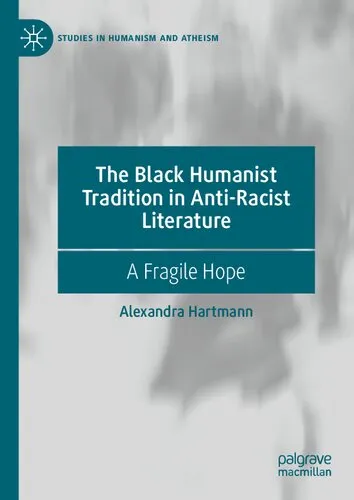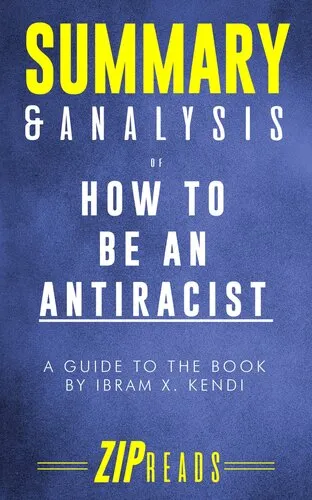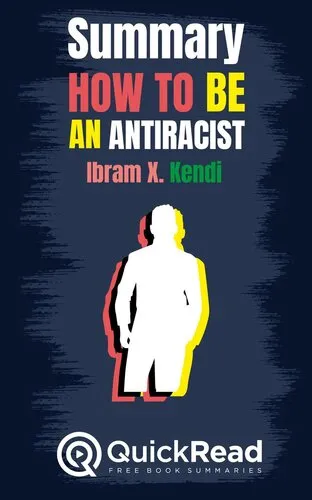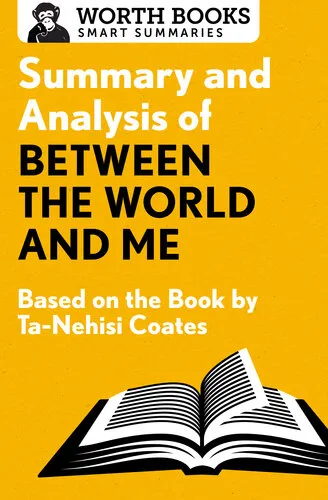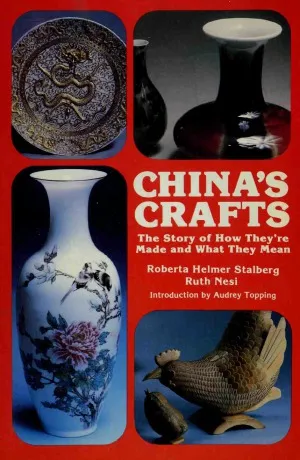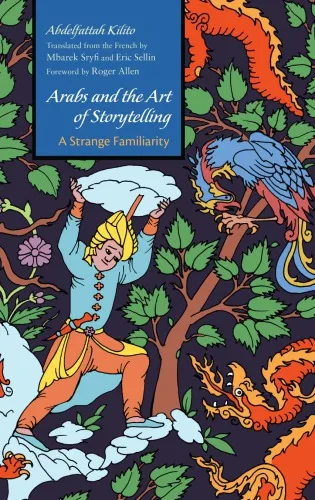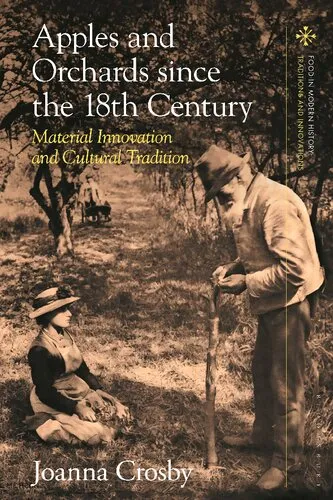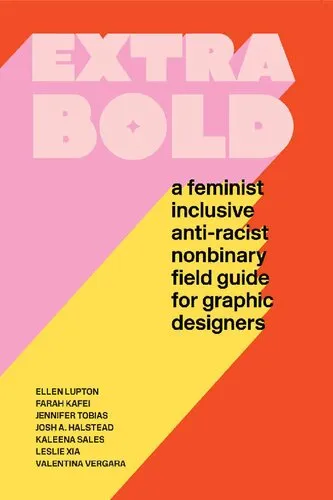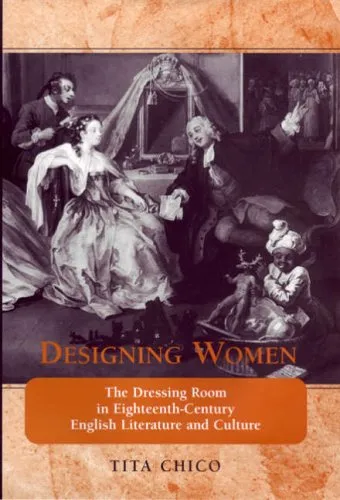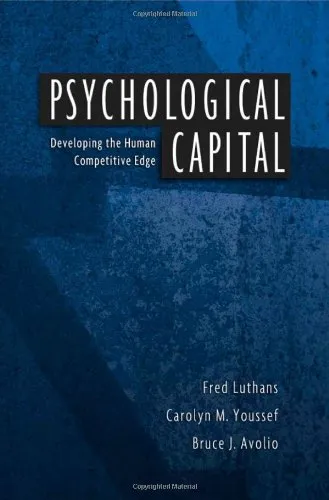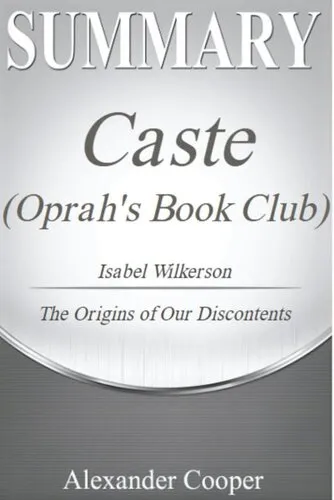The Black Humanist Tradition in Anti-Racist Literature: A Fragile Hope
4.5
Reviews from our users

You Can Ask your questions from this book's AI after Login
Each download or ask from book AI costs 2 points. To earn more free points, please visit the Points Guide Page and complete some valuable actions.Related Refrences:
Introduction to "The Black Humanist Tradition in Anti-Racist Literature: A Fragile Hope"
"The Black Humanist Tradition in Anti-Racist Literature: A Fragile Hope" offers a bold exploration into the profound ways Black thinkers, writers, and activists have turned to the philosophy of humanism in their pursuit of justice, dignity, and equality. Rooted in literary critique, historical contextualization, and philosophical inquiry, this book delves deeply into the intersection of Black humanist thought and anti-racist literature. It frames humanism as both a tool of resistance and a fragile hope in the ongoing struggle against systemic oppression.
In a world increasingly polarized by race, class, and ideology, the text challenges readers to consider how Black voices in literature have persistently called for a vision of shared humanity—a vision that remains both inspiring and precarious. Drawing on works ranging from W.E.B. Du Bois and Zora Neale Hurston to James Baldwin, Audre Lorde, and Ta-Nehisi Coates, the book illuminates how Black literature has consistently merged humanist ideals with the realities of lived oppression, creating a unique tradition of hope sustained under unimaginable sociopolitical pressures.
The aim of this book is to explore not just the achievements of Black humanists but also the limits and contradictions inherent in deploying humanism as a framework for navigating racial injustice. At its core, this text reveals humanism as a double-edged sword: a way to affirm life, community, and equality, while simultaneously constrained by the very systems it seeks to overcome.
A Detailed Summary of the Book
"The Black Humanist Tradition in Anti-Racist Literature: A Fragile Hope" is divided into key thematic chapters that chronicle the evolution of Black humanist ideals in literature.
It begins with an analysis of early 20th-century writers such as W.E.B. Du Bois and his seminal text "The Souls of Black Folk," where humanist ideals are presented through the concept of "double consciousness." This is followed by a discussion of Zora Neale Hurston’s reframing of Black individuality and spirituality in opposition to mainstream narratives of intellectual elitism. Moving into the mid-century, the book takes readers into the works of James Baldwin, whose extraordinary essays and novels highlight both the transformative power and painful fragility of Black humanist traditions.
Later chapters focus on feminist and intersectional perspectives by writers such as Audre Lorde and bell hooks, emphasizing how Black women’s voices have uniquely nourished the humanist tradition. The book concludes with contemporary literature, including Ta-Nehisi Coates’ works, which question whether society can sustain the humanist ideals of equality and shared humanity in the face of persistent structural racism.
Throughout the book, these analyses are paired with philosophical discussions that unpack the concept of humanism itself. What happens when the humanist promise of equality and empathy meets the harsh realities of systemic oppression? How does Black literature uniquely critique and expand the boundaries of humanism? These questions form the intellectual scaffolding of this text.
Key Takeaways
- Black humanism embraces the ideals of shared humanity while acknowledging the deep fissures of historical and systemic injustice.
- Literature serves as a critical space for reimagining humanism and expanding its potential as a tool for resistance and liberation.
- The Black humanist tradition recognizes the fragility of hope in a world of persistent inequality, yet chooses to nurture that hope nonetheless.
- Writers like Baldwin, Lorde, and Hurston demonstrate that humanism, when engaged critically, can be a source of profound emotional and intellectual resilience.
- Contemporary anti-racist literature continues to grapple with the tensions between humanism and the ongoing realities of structural racism.
Famous Quotes from the Book
"Humanism without a critical understanding of power becomes little more than an empty promise, a dream deferred."
"What makes Black humanism distinct is its unflinching acknowledgment of pain alongside an enduring belief in a better tomorrow."
Why This Book Matters
This book is essential reading for anyone seeking to understand the relationship between philosophical humanism and literature, particularly within the tradition of Black resistance to oppression. It provides a fresh perspective on how humanist ideals have been shaped and reshaped within a racialized world.
By centering the voices of Black writers, thinkers, and activists, "The Black Humanist Tradition in Anti-Racist Literature" bridges the gap between theory and lived experience. In doing so, it challenges readers to engage deeply with concepts like equality, community, and justice—not merely in abstract terms, but as imperatives grounded in history's most powerful literature.
The fragility of hope serves as the beating heart of this book. At a time when humanism itself is being questioned, this text insists on its relevance and reimagines its possibilities, inviting readers into a profound conversation about shared humanity. Through its pages, "A Fragile Hope" becomes a call to action for all who believe in the transformative power of words and the enduring necessity of hope in the fight against injustice.
Free Direct Download
You Can Download this book after Login
Accessing books through legal platforms and public libraries not only supports the rights of authors and publishers but also contributes to the sustainability of reading culture. Before downloading, please take a moment to consider these options.
Find this book on other platforms:
WorldCat helps you find books in libraries worldwide.
See ratings, reviews, and discussions on Goodreads.
Find and buy rare or used books on AbeBooks.
1377
بازدید4.5
امتیاز0
نظر98%
رضایتReviews:
4.5
Based on 0 users review
Questions & Answers
Ask questions about this book or help others by answering
No questions yet. Be the first to ask!
